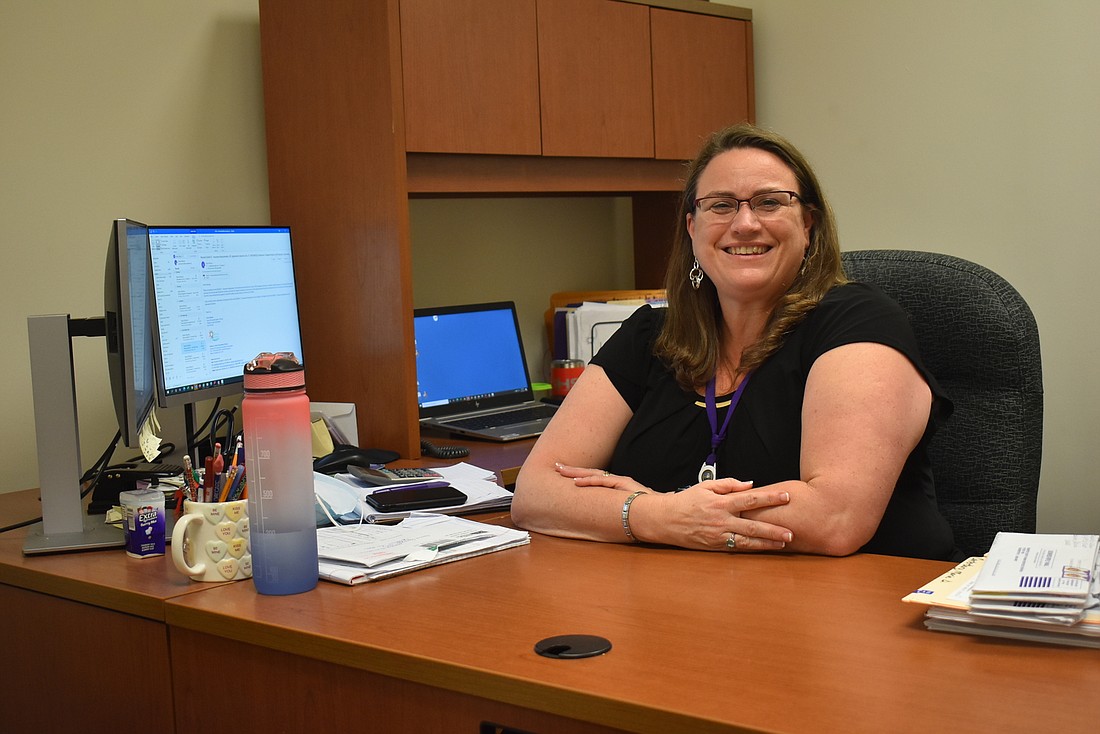- January 6, 2025
-
-
Loading

Loading

With much attention placed on seniors 65 and up due to Manatee County's COVID-19 program, Senior Services Manager Tracie Adams said people should also think of that age group when, in general, it comes to discussing people in need.
The most visible seniors, she said, are active and therefore seem like they don’t need much help. The other group of seniors people think about are living in assisted living facilities.
However, Adams said Manatee County has a middle group of seniors who still live at home but could use some sort of help on a regular basis. These seniors often go unnoticed.
That's where Manatee County's Senior Services division can excel, according to Adams.
She only wishes the county could help more of them, and that would mean a bigger budget.
Senior Services learned the week of Jan. 25 the state would be supplying additional funding. Adams estimated her division would receive the money sometime in February, and an amendment to the division's budget would go before the Board of County Commissioners in March. Some money will be used to cover excess expenditures.
The Community Care for the Elderly program will receive an additional $82,596 to add to its current budget of $1,190,668 and is likely to add about 10 new clients from the waitlist. The Home Care for the Elderly program will receive $6,610 to add to its current budget of $93,693 and is likely to add about eight to 10 new clients from the waitlist. The Alzheimer’s Disease Initiative program will receive $55,118 to add to its current budget of $431,428 but is unlikely to add any clients.
“There's not enough money to cover the need in the community,” Adams said. “That is tough. You feel bad, and we're just happy that this little increase is coming.”
Manatee County Senior Services, also known as Aging and Eligibility Services, is part of the Neighborhood Services Department. Senior Services directs programs for county citizens age 60 or older who are still living independently. The goal is to help seniors continue to live in their own homes for as long as possible, according to Adams.
“Just because you're getting older and can't do everything to maintain your home or maintain yourself, that shouldn't be a reason that you have to leave it,” Adams said. “Being able to age in place is better overall for your own mental health than having to go to some congregate facility living situation.
"Then the money side of things, it’s more cost effective to pay for services in the home than it is to pay for services at a facility.”
Aging and Eligibility Services consists of three main programs: Community Care for the Elderly, Alzheimer’s Disease Initiative, which has no age limit, and Home Care for the Elderly, a financial assistance program. The county has about 150 clients who use the three programs.
The community care program is by far the largest of the three, with 99 active clients and a waitlist of about 600. Adams is hopeful she’ll soon bring in more people off the waitlist after a recent boost in funding from the state. The waitlist for the Alzheimer’s Disease Initiative and Home Care for the Elderly were 87 and 78, respectively, as of the week of Jan. 22.
Financial situation does not affect eligibility for the community care program. Interested seniors speak with someone from the state in an over-the-phone assessment. Based on the assessment, seniors are scored and placed on the county’s waitlist. Those who need care the most are placed at the front of the line.
However, the price of services provided by the community care program depends on the senior’s income, usually sources of retirement income such as Social Security and pension. Low-income seniors can obtain service for free, while those with more money pay a percentage of their income each month.
Senior Services does not provide these services directly. For each enrolled senior, county staff provides a case manager who does an in-home assessment and creates a care plan with the senior and their family to determine which services are needed. The case manager checks in regularly and re-assesses the senior each year, while Senior Services uses the funding it receives from the Florida Department of Elder Affairs to contract companies that provide direct assistance to seniors.
For example, Senior Services has partnered with Meals on Wheels to deliver food and ADT Security Services for emergency alert response. Home Instead Senior Care, Assisting Hands Gulf Coast and Maxim Healthcare services are examples of companies used to provide personal care, respite care and homemakers services. Homemaker services include light housekeeping, laundry, grocery shopping and other types of personal care.
“Seniors in need are like an invisible thing because they're in their homes so much,” Adams said. “The visible seniors are active, but people tend to forget about the seniors that are at home and not out, or the caregiver struggling trying to take care of somebody.”